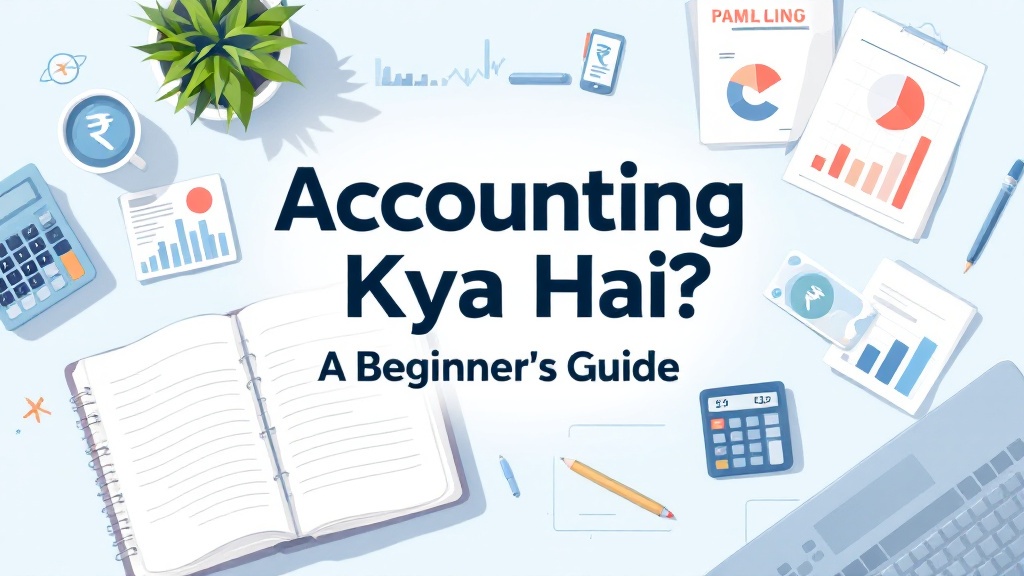Understanding Accounting Principles, Concepts, and Conventions: A Beginner-Friendly Guide
Table of Contents
Most Read
[fusion_dropcap class="fusion-content-tb-dropcap"]I[/fusion_dropcap]ntroduction If you’ve ever wondered how businesses keep track of their money, the answer lies in accounting. But accounting isn’t just about numbers—it’s about following a set of principles, concepts, and conventions that ensure financial information is accurate, consistent, and useful. Whether you’re a Class 11 student just getting started, a small business owner, or someone simply curious about the world of finance, this guide will break things down in a clear and engaging way.
What Are Accounting Principles? Accounting principles are the basic rules and guidelines that accountants follow when recording and reporting financial data. These principles help maintain consistency, reliability, and comparability in financial statements. Think of them as the grammar rules of the language of business.
The Golden Rules of Accounting Before diving deeper, let’s touch on the three golden rules of accounting:
- Personal Account – Debit the receiver, Credit the giver.
- Real Account – Debit what comes in, Credit what goes out.
- Nominal Account – Debit all expenses and losses, Credit all incomes and gains.
These are foundational and used in journal entries to ensure transactions are recorded correctly.
Accounting Concepts: The Core Ideas Accounting concepts are theoretical ideas that support the way accounting is practiced. Here are some of the most important ones:
- Business Entity Concept
- Treat the business and the owner as two separate entities.
- Ensures personal and business finances don’t mix.
- Money Measurement Concept
- Only transactions measurable in money are recorded.
- Non-financial aspects like employee satisfaction aren’t included.
- Going Concern Concept
- Assumes the business will continue to operate in the foreseeable future.
- Impacts how assets and liabilities are valued.
- Accounting Period Concept
- Financial results are reported for a specific period (e.g., monthly, quarterly, annually).
- Helps in comparing performance over time.
- Cost Concept
- Assets are recorded at their original purchase cost.
- Doesn’t consider current market value for regular reporting.
- Dual Aspect Concept
- Every transaction has two aspects: debit and credit.
- Forms the foundation of the double-entry system.
- Matching Concept
- Expenses should be matched with the revenues they help to generate.
- Ensures accurate profit calculation.
- Accrual Concept
- Revenues and expenses are recorded when they occur, not when cash is exchanged.
- Provides a more accurate picture of financial health.
Accounting Conventions: Practical Applications While concepts are theoretical, accounting conventions are practical guidelines derived from common practices. They help standardize the way financial information is presented. Here are the key conventions:
- Convention of Consistency
- Use the same accounting methods over time.
- Makes comparison of financial statements easier.
- Convention of Full Disclosure
- All relevant information must be disclosed in financial statements.
- Builds trust and transparency.
- Convention of Materiality
- Focus on information that is significant enough to influence decisions.
- Minor details can be ignored for simplicity.
- Convention of Conservatism
- Anticipate no profits, but provide for all possible losses.
- Encourages cautious and prudent reporting.
Why These Principles, Concepts, and Conventions Matter They aren’t just academic—they have real-world importance:
- Improve Comparability: Helps in comparing financial statements across periods and businesses.
- Build Credibility: Increases trust among investors, lenders, and stakeholders.
- Support Decision Making: Provides a solid foundation for analyzing business performance.
Real-Life Example: Applying the Principles Let’s say a business purchases machinery worth ₹5,00,000. According to the Cost Concept, it will be recorded at purchase price, not market value. If the owner also uses it for personal use, the Business Entity Concept ensures that personal use is not mixed in business records. If the machine will be used for 10 years, the Going Concern Concept justifies spreading its cost over time (depreciation).
Tips for Class 11 Students
- Understand, Don’t Memorize: Focus on understanding the logic behind each principle.
- Use Real Examples: Try relating concepts to everyday transactions.
- Practice Journal Entries: It’s the best way to master the golden rules.
Conclusion Understanding accounting principles, concepts, and conventions is like learning the rules of the game. Once you grasp them, everything else in accounting becomes much easier. Whether you’re preparing for exams, managing a small business, or exploring a career in finance, these fundamentals are your stepping stones to success.
Remember, accounting isn’t just about numbers—it’s about telling the story of a business through numbers. And every good story starts with a strong foundation.
Ready to Learn More? Follow our blog at Accounting24.in for more easy-to-understand accounting tips, tax updates, and business insights!









